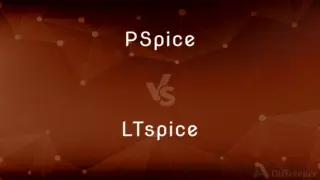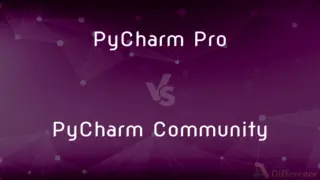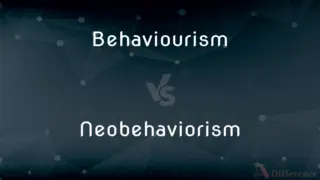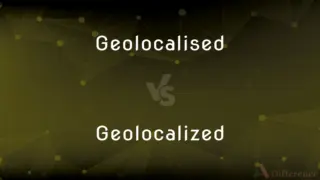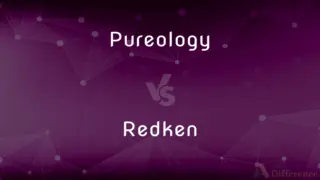Accusation vs. Persecution — What's the Difference?
By Urooj Arif & Fiza Rafique — Updated on March 2, 2024
An accusation is a charge or claim that someone has done something illegal or wrong, while persecution involves the hostile and unfair treatment of others, often due to their beliefs or identity.

Difference Between Accusation and Persecution
Table of Contents
ADVERTISEMENT
Key Differences
Accusation involves asserting that someone has committed a wrongdoing or crime, often initiating a process to determine guilt. This can occur in legal, personal, or professional contexts. Whereas persecution refers to sustained and systemic oppression or mistreatment, often based on religious, ethnic, or social identity, going beyond mere allegations to include actions that harm or discriminate against a group or individual.
An accusation typically requires some level of proof or evidence to be considered credible, and it may lead to formal proceedings in a court of law or disciplinary actions in other settings. On the other hand, persecution may not always be predicated on evidence but can be driven by prejudice, hate, or political motives, aiming to marginalize, suppress, or harm a particular group or person.
While an accusation can be a singular event affecting one individual or entity, persecution often implies a pattern or series of actions against a broader group. This means that while individuals might face accusations, groups or communities can be subjected to persecution.
Accusations can sometimes be resolved through legal or social mechanisms, allowing for the possibility of clearing one's name or rectifying misunderstandings. In contrast, persecution often requires systemic change or intervention to address the underlying issues of discrimination or hatred that fuel it.
The impact of an accusation can vary, potentially leading to legal consequences, damage to reputation, or personal distress. Persecution, however, typically results in more severe consequences, including loss of rights, physical harm, or even death, reflecting the more serious and sustained nature of such actions.
ADVERTISEMENT
Comparison Chart
Definition
A claim that someone has done something wrong
Systematic and ongoing mistreatment
Basis
Often requires evidence or proof
Driven by bias, prejudice, or hate
Scope
Can be individual or specific
Often broad, targeting groups or communities
Consequences
Legal proceedings, social stigma
Loss of rights, harm, systemic oppression
Resolution Mechanism
Legal or disciplinary actions
Requires systemic change or intervention
Compare with Definitions
Accusation
An assertion of guilt.
His accusation surprised everyone.
Persecution
Systematic oppression.
The persecution of minorities has a long history.
Accusation
A charge of wrongdoing.
The accusation of theft led to a trial.
Persecution
Unjust treatment due to beliefs.
Persecution for political beliefs is common in some regions.
Accusation
Basis for legal action.
The lawyer prepared the accusation carefully.
Persecution
Enduring discrimination.
Persecution based on religion remains a global issue.
Accusation
A claim requiring proof.
The accusation was supported by evidence.
Persecution
Actions causing suffering.
The regime's persecution included imprisonment and torture.
Accusation
An accusation is a statement by one person asserting that another person or entity has done something improper. The person who makes the accusation is an accuser, while the subject against whom it is made is the accused.
Persecution
Harassment with severe consequences.
The persecution led many to flee their homeland.
Accusation
A formal charge of wrongdoing brought against a person; the act of imputing blame or guilt
Persecution
Persecution is the systematic mistreatment of an individual or group by another individual or group. The most common forms are religious persecution, racism and political persecution, though there is naturally some overlap between these terms.
Accusation
A charge or claim that someone has done something illegal or wrong
Accusations of bribery
Persecution
The condition of being persecuted.
Accusation
A statement of blame.
The accusation against the mayor caused a scandal.
Persecution
The act of persecuting.
Accusation
An act of accusing or the state of being accused.
Persecution
The state or condition of being persecuted.
Accusation
The act of accusing or charging with a crime or with a lighter offense.
We come not by the way of accusationTo taint that honor every good tongue blesses.
Persecution
A carrying on; prosecution.
Accusation
An assertion that someone is guilty of a fault or offence;
The newspaper published charges that Jones was guilty of drunken driving
Persecution
The act of persecuting (especially on the basis of race or religion)
Common Curiosities
How do accusations and persecution differ in basis?
Accusations often require evidence, while persecution is driven by bias or hate.
What is an accusation?
An accusation is a claim that someone has committed a wrongdoing or crime.
Is an accusation always legal in nature?
No, accusations can be made in various contexts, including personal and professional settings, not just legal ones.
Can accusations lead to persecution?
Yes, false or targeted accusations can sometimes escalate into broader persecution, especially if they fuel existing biases.
Can an individual be persecuted, or is it only groups?
While persecution typically targets groups, individuals can also be persecuted, especially if they represent or belong to a marginalized group.
What are the consequences of persecution?
These can range from loss of rights and freedoms to physical harm and systemic oppression.
How is the scope of accusation and persecution different?
Accusations are often specific to incidents or individuals, while persecution is broader, affecting groups or communities.
How can individuals defend against accusations?
Individuals can present evidence, seek legal counsel, or use public platforms to refute accusations.
What does persecution mean?
Persecution refers to the systematic and unfair treatment of individuals or groups, often due to their beliefs or identity.
What are the consequences of accusations?
Consequences can include legal proceedings, damage to reputation, or social stigma.
Can persecution occur without a formal accusation?
Yes, persecution often occurs without formal accusations and is based on systemic issues of bias and discrimination.
What resolution mechanisms exist for persecution?
Addressing persecution often requires broader societal or political changes to combat the underlying biases or structures.
What resolution mechanisms exist for accusations?
These can include legal defense, settlements, or public clarifications.
How can communities combat persecution?
Communities can mobilize support, advocate for legal and policy changes, and raise awareness to combat persecution.
Are accusations always negative?
While accusations are generally seen as negative, they can also lead to the uncovering of truth and justice in certain contexts.
Share Your Discovery

Previous Comparison
Yellowtail vs. Amberjack
Next Comparison
Shutoff vs. ShutdownAuthor Spotlight
Written by
Urooj ArifUrooj is a skilled content writer at Ask Difference, known for her exceptional ability to simplify complex topics into engaging and informative content. With a passion for research and a flair for clear, concise writing, she consistently delivers articles that resonate with our diverse audience.
Co-written by
Fiza RafiqueFiza Rafique is a skilled content writer at AskDifference.com, where she meticulously refines and enhances written pieces. Drawing from her vast editorial expertise, Fiza ensures clarity, accuracy, and precision in every article. Passionate about language, she continually seeks to elevate the quality of content for readers worldwide.



















